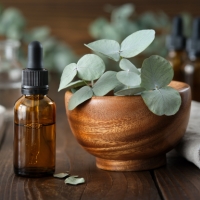Learning about gum disease is essential for maintaining good oral health. Many people suffer from swollen, bleeding, or receding gums but hesitate to visit a dentist. Fortunately, there are effective ways to treat gum disease at home. With the right approach, you can reduce inflammation, strengthen your gums, and prevent further damage.
This blog will help you understand the causes of gum disease and the best methods to cure it naturally.
Understanding the Causes of Gum Disease
Gum disease, also known as periodontal disease, is primarily caused by bacterial infections that affect the gums and surrounding structures of the teeth. Knowing the root causes is essential for finding the right treatment. Poor oral hygiene, plaque buildup, and bacterial infections are the primary causes, while factors like smoking, diabetes, and poor diet can worsen the condition.
Here are the 10 most common causes of gum disease:
| Cause | How It Happens |
|---|---|
| Poor Oral Hygiene | Inadequate brushing and flossing allow plaque buildup, leading to gum inflammation. |
| Plaque and Tartar Buildup | When plaque is not removed, it hardens into tartar, which can cause gum irritation and infection. |
| Smoking and Tobacco Use | Tobacco weakens the immune system, making it harder for the gums to heal from infections. |
| Genetics | Some individuals are more genetically prone to gum disease, even with good oral care. |
| Hormonal Changes | Pregnancy, menopause, and puberty can make gums more sensitive and prone to inflammation. |
| Diabetes | High blood sugar levels can increase the risk of infections, including gum disease. |
| Poor Nutrition | A diet lacking essential vitamins, especially Vitamin C, can weaken gum health. |
| Stress | Chronic stress can weaken the immune system, reducing the body’s ability to fight infections. |
| Certain Medications | Some drugs reduce saliva flow, leading to dry mouth, which increases the risk of gum disease. |
| Clenching or Grinding Teeth | Excessive pressure on the gums can lead to tissue damage and inflammation. |
Maintaining good oral hygiene, a healthy diet, and regular dental checkups can help prevent gum disease.
Steps To Cure Gum Disease Without A Dentist
While professional dental care is the most effective way to treat gum disease, there are steps you can take at home to manage and improve your gum health.
Here’s how to cure gum disease without a dentist:
- Improve Oral Hygiene
Brush your teeth at least twice a day with a soft-bristled toothbrush and fluoride toothpaste. Floss daily to remove plaque between teeth. - Use an Antibacterial Mouthwash
Rinse with an antimicrobial or saltwater solution to reduce bacteria and inflammation. - Oil Pulling
Swishing coconut or sesame oil in your mouth for 10–15 minutes may help reduce bacteria and plaque buildup. - Maintain a Healthy Diet
Eat foods rich in vitamins C and D, as they help strengthen gums and boost immunity. Avoid sugary and processed foods. - Stay Hydrated
Drinking plenty of water helps wash away food particles and bacteria, preventing plaque buildup. - Quit Smoking and Tobacco Use
Smoking weakens the immune system, making it harder for gums to heal. - Massage Your Gums
Gently massaging your gums with your fingers or a soft toothbrush can stimulate blood circulation and promote healing. - Use Natural Remedies
Aloe vera gel, tea tree oil, and turmeric paste have antibacterial properties that may help reduce gum inflammation. - Manage Stress
Chronic stress can weaken the immune system, making it harder for the body to fight infections. Practice relaxation techniques like meditation and deep breathing. - Monitor Your Condition
Regularly check for signs of gum disease, such as swelling, bleeding, or bad breath. If symptoms worsen, consult a dentist immediately.
These steps can help improve gum health, but if the condition persists or worsens, professional dental care is recommended.
Best Natural Ingredients to Fight Gum Infections
Several natural ingredients help fight gum infections effectively. These ingredients contain antibacterial and anti-inflammatory properties.
Here are some important natural ingredients and their benefits:
1. Turmeric

Turmeric is known for its powerful anti-inflammatory and antibacterial properties, primarily due to its active compound, curcumin. It helps reduce swelling, redness, and bleeding in the gums while preventing plaque buildup. Applying a turmeric paste directly to the gums or using a turmeric-infused mouthwash can be effective in maintaining gum health.
2. Clove Oil

Clove oil contains eugenol, a natural pain reliever and antiseptic that helps fight infection. It numbs gum pain, reduces swelling, and prevents bacterial growth. Applying a drop of clove oil directly to the affected gums using a cotton swab or diluting it in water for a mouth rinse can provide relief and support healing.
3. Tea Tree Oil

Tea tree oil is widely recognized for its antimicrobial and anti-inflammatory properties. It helps eliminate harmful bacteria, reduce gum inflammation, and heal bleeding gums. Adding a few drops of tea tree oil to toothpaste before brushing or diluting it with water as a mouth rinse can help maintain gum health. However, it should never be swallowed.
4. Eucalyptus Oil

Eucalyptus oil is beneficial for gum health as it stimulates new gum tissue growth and strengthens existing gum structures. Its antibacterial and anti-inflammatory properties help reduce swelling, pain, and bacterial infections. Diluting eucalyptus oil with a carrier oil, such as coconut oil, and gently massaging it onto the gums or using it in a mouth rinse can support gum healing.
5. Manuka Honey

Manuka honey is well known for its strong antibacterial and healing properties. It helps kill harmful oral bacteria, speeds up the healing of gum infections, and reduces inflammation. Applying a thin layer of Manuka honey directly onto the gums or mixing it with warm water for a natural mouth rinse can help soothe and protect infected gums.
Incorporating these natural ingredients into a daily oral care routine can help prevent and treat gum infections effectively. However, if gum problems persist, it is important to seek professional dental care.
Daily Oral Care Routine to Prevent Gum Disease
Maintaining a proper oral care routine prevents gum disease from worsening. Following a structured approach ensures long-term oral health.
Here’re some recommended oral care routine:
| Brush Twice a Day | Use a soft-bristle toothbrush and fluoride toothpaste. |
| Floss Daily | Removes food particles between teeth. |
| Use an Antibacterial Mouthwash | Helps in reducing plaque. |
| Scrape Your Tongue | Prevents bacterial buildup. |
| Replace Your Toothbrush Regularly | Change every three months. |
Following these steps keeps your gums healthy and free from infections.
Diet and Lifestyle Changes for Stronger Gums
Eating the right foods and making lifestyle changes can improve gum strength and prevent disease.
1. Foods That Support Gum Health
- Leafy Greens – Rich in vitamin C, reducing gum inflammation.
- Dairy Products – Calcium strengthens teeth and gums.
- Crunchy Vegetables – Helps clean teeth naturally.
- Nuts and Seeds – Contain essential minerals for gum health.
- Water – Keeps the mouth hydrated and washes away bacteria.
2. Lifestyle Changes for Better Oral Health
- Quit Smoking – Prevents gum deterioration.
- Reduce Sugar Intake – Minimises bacterial growth.
- Stay Hydrated – Keeps saliva production at healthy levels.
- Exercise Regularly – Improves blood circulation to the gums.
A balanced diet and a healthy lifestyle contribute to strong and resilient gums.
When to Seek Professional Help
Sometimes, home treatments are not enough. If symptoms persist, seeking professional help is necessary.
Here’re some signs that indicate a dentist visit is required:
- Severe Pain and Bleeding
Home remedies do not provide relief. - Pus Formation
Indicates a serious infection. - Loose Teeth
Shows significant gum deterioration. - Bad Breath That Doesn’t Go Away
Could indicate an underlying issue. - Swollen or Receding Gums
Signs of gum disease that need professional care.
Recognising these signs early can prevent serious complications.
FAQ on Gum Disease
Yes, chronic stress can weaken the immune system, making it harder for the body to fight infections, including gum disease. It can also lead to poor oral hygiene habits.
Dehydration reduces saliva production, leading to dry mouth. Saliva helps wash away bacteria, so a lack of it increases the risk of plaque buildup and gum disease.
Chewing sugar-free gum can stimulate saliva production, which helps reduce bacteria in the mouth. However, excessive chewing can strain the jaw and cause gum irritation.
Yes, breathing through the mouth can dry out gums, reducing saliva flow and making gums more prone to irritation, inflammation, and infections.
Yes, poor gut health can lead to inflammation and an imbalance of bacteria in the mouth, increasing the risk of gum disease. A diet rich in probiotics may help.
Final Thoughts
Knowing how to cure gum disease without a dentist helps in maintaining oral health naturally. By understanding the causes, using home remedies, and making dietary and lifestyle changes, you can effectively manage gum disease. However, if symptoms worsen, seeking professional help is necessary. Consistency in oral care is the key to achieving healthy gums and a confident smile.



